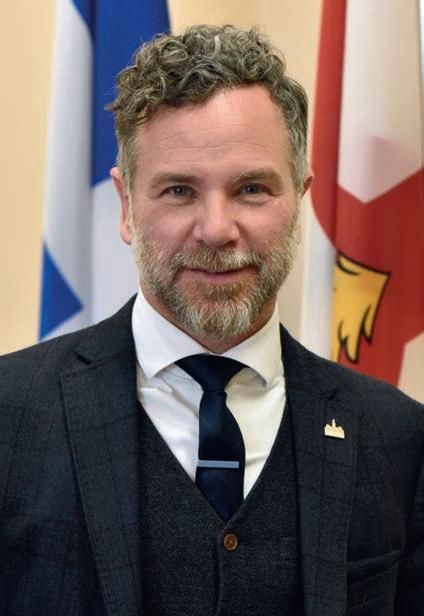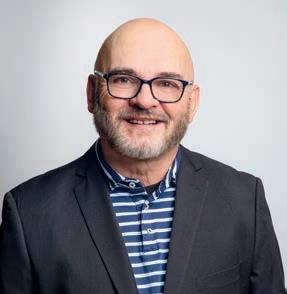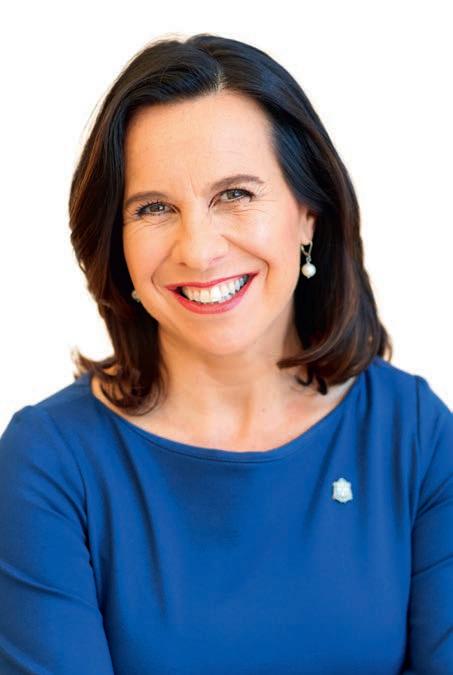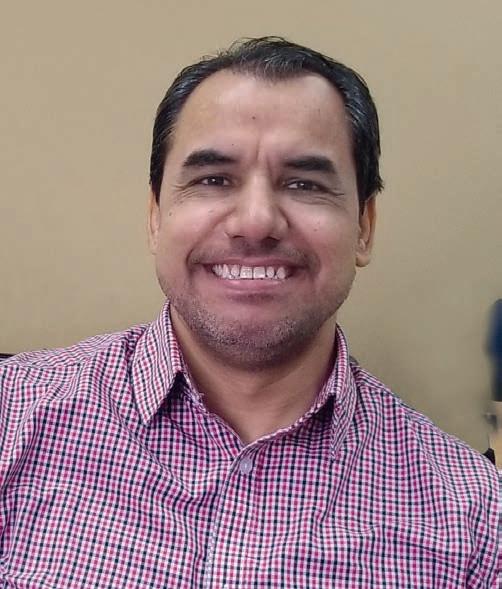
5 minute read
UNIVERSITIES AND THE CITY OF MONTRÉAL A Naturel Alliance
UNIVERSITIES AND THE CITY OF MONTRÉAL
A NATURAL ALLIANCE
BY GABRIELLE BRASSARD-LECOURS, JOURNALIST
With its four universities and other institutions of higher education, Montréal is a city of knowledge. It is thus quite natural that Valérie Plante’s administration is forging strong links with the educational milieu so as to use that know-how to improve services provided to citizens, and to resolve problems and overcome obstacles.
Some agreements were signed between the City and educational institutions in the past, but in the last eighteen months concrete work has been underway to raise the prestige of higher education," said François Croteau, mayor of the Rosemont–La Petite-Patrie borough. He is the person in charge of smart city, technology, information and innovation files for the City of Montréal executive committee.
The Plante administration has initiated discussions to generate ideas and possible solutions in order to highlight three main areas of intervention that are to be a top priority: talent, knowledge and improving citizen services using an evidence-based approach. With that emphasis, several projects have taken shape in partnership with 12 educational institutions and departments of higher education in Montréal.
JBC MÉDIA BY DENIS BERNIER

FRANÇOIS CROTEAU Mayor of the Rosemont–La Petite-Patrie borough, in charge of smart city, technology, information and innovation files for the City of Montréal executive committee
KEEPING TALENT HERE Thanks to collaboration with the Maison de l’innovation sociale, students at Concordia University, working with municipal employees, have taken on the challenge of tackling Montréal’s urban problems through the CitéStudio project. Created by the municipal Parks and Sports Service, the city’s Parks and Biodiversity Management branch and the Department of Communication Studies at Concordia University, it seeks answers to an important question. "How can we identify, understand and increase the diversity and surface area of the urban canopy?" Another area of interest is to make the city’s most dangerous intersections safe, secure and pedestrian friendly. That matter is being pursued jointly by the municipal City Planning and Mobility Service and the departments of Geography, Planning and Environment and Mechanical, Industrial & Aerospace Engineering at Concordia.
More than 25 pilot projects are being developed at CitéStudio, which has access to six courses at Concordia University, 150 students from various departments and eight professors who teach classes that touch on the challenges being pursued by CitéStudio. "Given that it is part of their training, it serves as a practical apprenticeship that on the one hand supports students in their work, and on the other helps to keep talent here in Montréal by showing undergraduate students how their studies and research can have an impact in helping to improve the city," mentioned François Croteau when discussing CitéStudio, which is based on a similar model established in Vancouver.
In addition to that laboratory, the City has also launched a call for projects based on specific problems targeted by its municipal services. The university teams selected will receive grants to help them develop their projects in concrete terms.

The Projet Montréal municipal party is also working on facilitating internships and work experience projects in its administration. "Internships are a very good way of getting to know the city, and often trigger a desire to work for the city. Internships are currently arranged by municipal services and borough offices, in somewhat scattershot fashion. We would like to arrange them through a single entity, with a complete list of all the internships available so that candidates apply to that single office. We also want all students in Montréal to have access to that list, not only students in a few university departments or study programs. We want to democratize access to municipal internships," added François Croteau.
PROMOTE KNOWLEDGE François Croteau noted that knowledge and research are fundamental elements of Montréal’s dynamism, and declared that the city intends to promote that aspect, especially since Montréal was voted the best student city in the world in 2019. He explained that the city is working with other cities such as Nantes in France, where collaboration between civil servants and universities is an integral part of the culture. "I wish it were like that here also," he said. He added that his party has noted that Montréal has already dispersed $14 million over the past seven years in direct financing on university research. "Those funds helped to develop several research projects and to draft solid recommendations to help Montréal provide better services to its citizens. It’s one of the ways we can promote knowledge."
The City of Montréal has set up a working group consisting of directors of universities and technical colleges, its purpose being to establish a joint strategy for targeting priorities and effective ways of working, and to pinpoint each school’s strengths. A lot of work has been accomplished, thus facilitating follow-up among various municipal services and research chairs, Mr. Croteau explained.
IMPROVING CITIZEN SERVICES "We would like to use an evidence-based approach more often so that making decisions and improving services are attuned to reality, facts and data," said the man in charge of Montréal’s smart city, technology, information and innovation files.
JBC MÉDIA BY DENIS BERNIER

To that end, he described the Séri Montréal program. An initiative of the municipal Economic Development Service, it aims to establish connec tions among experts from the worlds of business and academia so that new projects can emerge. This involves get-togethers, brainstorming sessions, meetings of small groups, etc. The first theme to emerge from this project was the environment. "It was fascinating to see the solutions that were proposed," noted Mr. Croteau.
Here also, grants are offered to students who come up with specific solutions for improving citizen services. Mr. Croteau was recently appointed to a new "science and politics" committee. Its objective is to improve links between politics and research, with assistance from partners such as the Association francophone pour le savoir (ACFAS) and the Bureau de coopération interuniversitaire (BCI).
"Our courses of action are numerous and cover many areas: sports and leisure, architecture, water management, etc. I have the privilege of being at the centre of concrete action involving science and politics. I want these projects to succeed; it’s my personal mission." He feels that the City of Montréal initiatives could one day inspire other university cities in Québec to also create more links to research.






